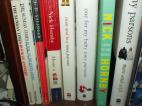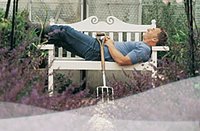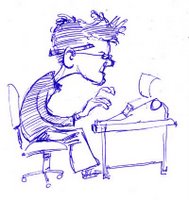OPEN ROAD/OPEN MIND
One of the dreaded questions often asked of authors at book signings is "Where do you get your ideas?" If you ever have the opportunity to watch a writer respond to this thorny question, pay attention to their eyes and I guarantee you’ll see them roll ...just a bit.
The reason this is not a favorite question is because authors often don’t know where idea formation comes from; it might come while looking at a snail edging along a leaf, watching a warplane on the news bombing a building, or suddenly pop up in a dream.
But
 , as a writer, if you’re having trouble coming up with new ideas, try a road trip. And I don’t mean speeding 90 mph down an interstate trying to make it to a destination before nightfall. I mean driving leisurely down back-roads with a cooler in the backseat, a camera, and some pen and paper.
, as a writer, if you’re having trouble coming up with new ideas, try a road trip. And I don’t mean speeding 90 mph down an interstate trying to make it to a destination before nightfall. I mean driving leisurely down back-roads with a cooler in the backseat, a camera, and some pen and paper.I recently took the opportunity to do just this, and living in California one might wonder how I could possibly tract across anything remotely back-roadish in such a
 well-populated State. It really isn’t that tough, because California is only densely peopled in the southwestern and coastal areas. The rest of the State’s inhabitants are sprinkled liberally here and there, with spots of vast emptiness in certain areas. One of these empty locations I decided to visit in December: the Sonoran Desert region that borders Arizona. Recalling the words of an explorer in Australia who said a desert is "Any barren tract of land that is truly dangerous to cross with camels," going here might give some pause when deciding to take a mini-vacation. But winter time in desert regions can be remarkably beautiful.
well-populated State. It really isn’t that tough, because California is only densely peopled in the southwestern and coastal areas. The rest of the State’s inhabitants are sprinkled liberally here and there, with spots of vast emptiness in certain areas. One of these empty locations I decided to visit in December: the Sonoran Desert region that borders Arizona. Recalling the words of an explorer in Australia who said a desert is "Any barren tract of land that is truly dangerous to cross with camels," going here might give some pause when deciding to take a mini-vacation. But winter time in desert regions can be remarkably beautiful.I visited the tiny city of Mecca and edged up to the Salton Sea. I meandered through Joshua Tree National Park and saw trees and plants that resembled life on another planet. I ate at Mom-and-Pop restaurants in Yucca Valley and rubbed shoulders with locals. I skirted by military installations at Twentynine Palms. I witnessed the troubling shanty-like homes of farm workers only 45 minutes away from the oozing wealth of La Quinta and Palm Desert; now tell me there aren’t a few stories seeping out of this little paragraph!


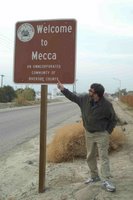
California isn’t the only State where you can do this, obviously, so give it a try in your area. Pull out a map and look at a lonely stretch of seldom used highway that wiggles itself through a section of land you’ve never dreamt of visiting.
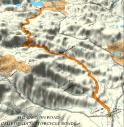 Is it calling to you?
Is it calling to you?Go on. You know you want to see it.

